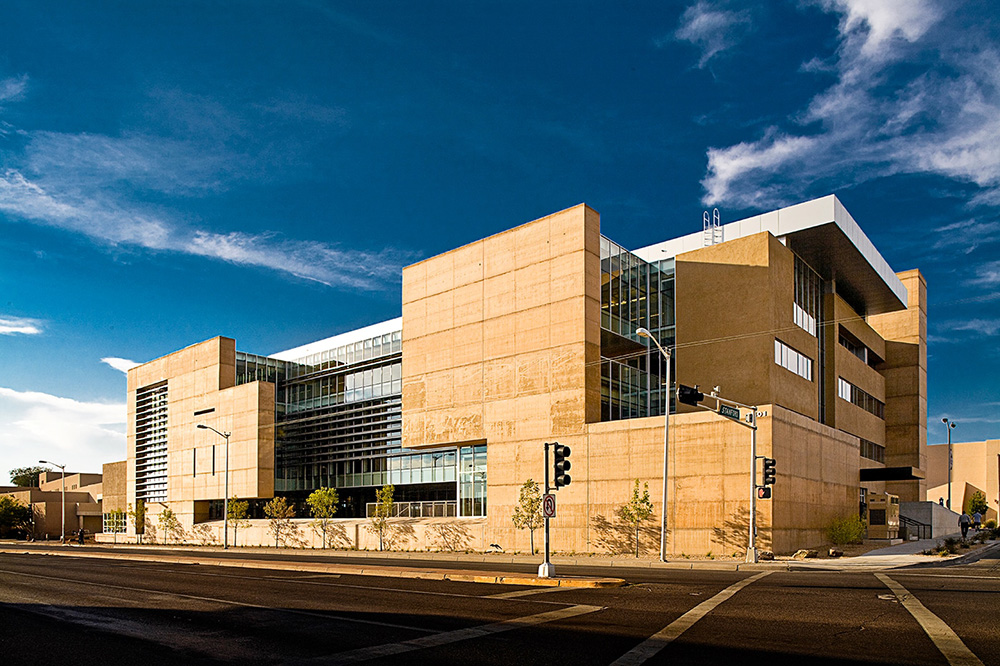About George Pearl Hall
History
The School of Architecture and Planning is one of nine schools/colleges of the University of New Mexico, maintaining strong historic ties with both the College of Engineering and the College of Fine Arts. The first professional degree in Architecture was accredited in 1967, and the Master of Architecture program received its first accreditation in 1968. In 1975 the School of Architecture and Planning was designated as a quasi-autonomous professional school, along with the Schools of Law, Medicine, Engineering, and Nursing.
The School’s Community and Regional Planning program was established in 1980. It is one of the founding academic units in the interdisciplinary Master of Water Resources Administration degree and plays an active role in community-based issues in the city. The newest degree program, Master of Landscape Architecture, was established in 1999.
In addition to the academic programs, the School has been active in the design and development of neighborhoods and local organizations across the state. Since 1969 the Design and Planning Assistance Center (DPAC) has provided community service in planning, design, and environmental research to towns and cities of New Mexico.
The School of Architecture and Planning sits along historic Route 66 in the heart of Albuquerque, offering views west to the Rio Grande River Valley and east to the Sandia Mountains. Albuquerque/Santa Fe comprises the largest metropolitan area in New Mexico with a population of about 900,000, within a larger context that includes rural villages dating back hundreds of years, twenty-two Pueblo communities, and the Navajo Nation.
The SA+P is well known for its connections to the region and for understanding the value of working directly on key issues of design and development in the state and region, including critical issues of sustainability and the planning/design of healthy communities. The School has a strong reputation for teaching and providing professional insight into the ways that history, culture, and the physical environment shape (and are shaped in) the region. Members of the faculty are actively involved with public agencies, NGOs, state licensing boards, and community organizations, while also participating in our professional associations.


